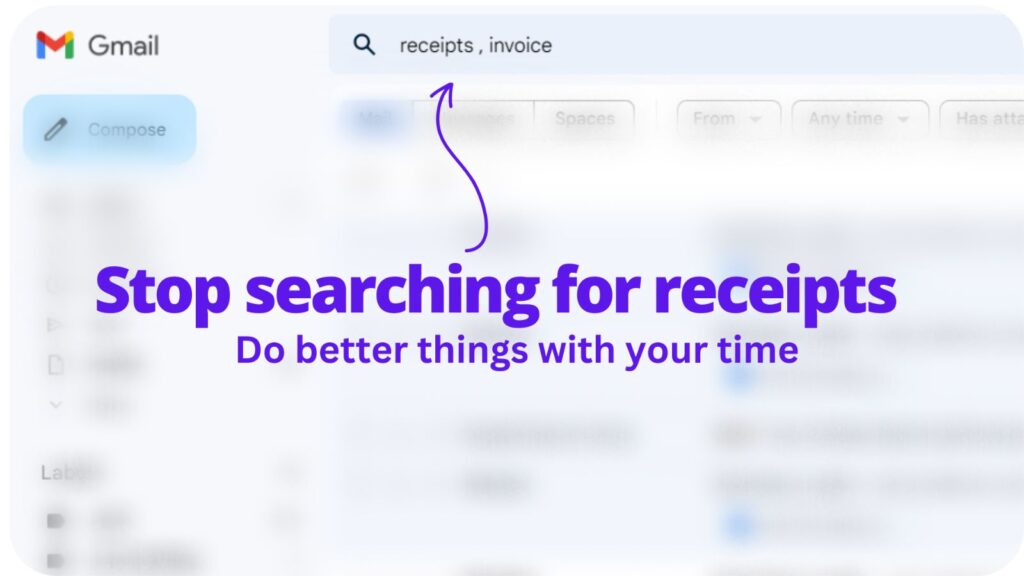Let’s chat about gas receipts and your taxes.
Ever looked at all those gas receipts you’ve stuffed in your car’s glove box and thought, “Why am I even keeping these?” You’re not alone. Lots of us wonder if these little bits of paper are worth hanging onto.
In this article, we’ll unravel this mystery. We’ll chat about why these seemingly unimportant pieces of paper might just be super important for your taxes. And don’t worry, we’ll keep it simple and fun. So stick around, and let’s make sense of this together.
The Importance of Keeping Gas Receipts for Taxes
Why Should We Keep Receipts?
Firstly, let’s talk about something that is called tax deduction. These are like discounts on your taxes. They can save you money.
If you drive your personal vehicle for business purposes, like a business trip, your gas expenses could become a tax deduction.
In addition, it’s not just about gas. Other vehicle related expenses, like oil changes and registration fees, can also be tax deductions. You need to keep a record of these, too. Keeping receipts organized is very important. This is where your gas receipts and other expenses come in handy.
What Do These Receipts Mean for Our Taxes?
Imagine you’re a self-employed artist. You travel to different towns to sell your paintings. You use your personal vehicle for these business trips. The money you spend on gas, then, is part of your business expense.
At tax time, you can use an approach called the actual expenses method. This means you add up the actual costs of things like gas and other costs directly related to your business. So, you can deduct these as actual expense from your taxes.
You can only claim these if you have proof. Your gas receipts are this proof. Therefore, keeping your gas receipts can lead to tax savings. Just think of it as your money coming back to you.
Understanding How Gas Receipts for Taxes Work

How Do Gas Expenses Impact Your Tax Returns?
Alright, let’s get into it. How do gas receipts work with taxes? Firstly, it’s about a thing called “deductions”. A deduction is like a discount on the money you owe in taxes.
Let’s say you drove your car for work. That means your car expenses, including gas, could be tax deductions. But, for this, you have to keep a record of these expenses. Your gas receipts are this record.
The cool part is, you can claim more than just gas expenses. Things like parking fees or other costs related to driving your car for work can be included in gross income. However, to claim these, you need proof, which is why we keep receipts.
How to Keep Track of Gas Receipts
Now you might ask, “That’s a lot of receipts. How do I keep track of all these?” Good question. Here’s where a mileage log comes in handy. It’s like a diary for your car. It tracks mileage for each business trip.
Every time you drive for business purposes, you write down the miles driven in your log. You also jot down the gas expenses. Keeping a detailed log helps at tax time. Plus, it’s also a great way to keep your glove box tidy.
Common Mistakes with Gas Receipts for Taxes

Forgetting to Save Gas Receipts
One common mistake? People often forget to save their gas receipts. So, when it’s tax time, they miss out on tax deductions. They didn’t save money because they didn’t have the receipts to prove their expenses.
Remember, each time you fill up your car for business travel, you need to keep that receipt. It’s proof of your auto expenses. So, don’t toss it out. Keep it safe for your tax return.
Not Keeping a Mileage Log
Another common mistake? Not keeping a mileage log. This is a record of how many miles you drive for work. You write down the odometer readings before and after each business trip. This helps you track mileage.
If you use the standard mileage deduction, the IRS wants to know your total mileage. Without a mileage log, it’s hard to remember all that information. Plus, if you’re audited, the IRS may want to see it.
Mixing Up Business and Personal Use
Also, don’t mix up business use and personal use of your car when claiming mileage back. Only miles driven for business can be written off as tax deductions. The IRS won’t accept expenses for driving to the grocery store or a friend’s house.
By avoiding these common mistakes, you can ensure you’re getting the most from your tax deductions. Above all, the key is to stay organized and keep track of your receipts and mileage.
Helpful Tips for Managing Gas Receipts for Taxes
Keeping Track of Your Receipts
One good tip is to keep track of all your gas receipts. Each time you buy gas for your business, save the receipt. It shows your actual expenses for gas. These receipts can be used to claim gas expenses on your tax return.
It’s a good way to cut your taxes. We can refer to this practice as the importance of keeping receipts.
A great idea is to have a special place to keep these receipts. It can be a folder or a box in your car. So you won’t lose them. And, when it’s time to do your taxes, you have them all in one place. That is tax preparation.
Recording Your Mileage
Another great tip is to keep a mileage log. Every time you drive for work, write down the miles driven. It’s very important if you use the standard mileage method of deduction. This method lets you deduct a certain amount for each mile. In 2021, it was 56 cents per mile driven for business.
You can keep a small notebook in your car for this. Or, you can use a mobile app. They make it easy to track mileage. And they can even give you reminders to do it.
Separating Business and Personal Use
Last but not least, remember to separate business and personal use. Only count the miles driven for work. And only the gas bought for these trips. Don’t mix them up with your personal trips or gas.
This is a common mistake, but you can avoid it. Just remember to only count the business miles driven and gas. Then, you’ll be all set at tax time.
The Future of Gas Receipts for Taxes
Digital Receipts and Apps
What will the future of gas receipts for taxes look like? Well, one big change is going digital. This means you’ll get your gas receipts on your phone, not on paper. It’s a great way to keep track of actual transportation expenses.
Not only this, but also many people are using apps. These apps can track mileage and gas. They’re easy to use. And they can make tax time much easier. The apps can even offer tax advice.
Electric Cars and New Deductions
More and more, people are driving electric cars. That means they’re not buying gas. So how can they claim car expenses on their tax return? Well, they might be able to use other deductions. These could be for vehicle expenses, or for charging the car.
The IRS might change the rules. They might make new deductions for electric cars. Or they might change the standard mileage rate method. It’s hard to say right now. Because things could change.
Changes to Tax Laws
Another thing that could change is tax laws. The government could make new laws about gas receipts for taxes. They might make it easier for self-employed people to claim gas. Or they might make it harder for businesses to write off car expenses. We’ll have to wait and see.
So, the future of gas receipts for taxes could be very different. But one thing is sure. You’ll still need to keep track of your gas or electric car expenses. And you’ll still need to claim them on your tax return.
FAQ
Do I need to keep gas receipts for all vehicle-related costs or only for business-related trips?
It’s important to keep gas receipts specifically for business-related trips. These receipts serve as proof of your expenses, allowing you to claim them as tax deductions. Remember, personal trips are not eligible for such deductions.
If I lose a gas receipt, can I still claim the expense?
Unfortunately, if you lose a gas receipt, it becomes challenging to claim the cost as an expense for tax purposes. The IRS often requires proof of these expenses, which is why keeping track of your gas receipts is so critical.
Can I deduct vehicle expenses if I rent instead of owning the car?
If you’re using a rented car for business purposes, you may be able to deduct certain expenses, such as the rental fee and gasoline costs. As with a car you own, you need to keep the receipts to validate these expenses during your tax year.
How much of the total mileage of my vehicle can I deduct?
You can deduct the mileage related solely to your business use of the vehicle. Personal mileage, or miles driven for personal reasons, are not eligible for a tax deduction. It’s important to keep a detailed log distinguishing between business and personal use.
Conclusion
In summary, gas receipts are a crucial part of your taxes if you use your vehicle for business. These small bits of paper can provide substantial tax deductions. Also, they help you record mileage, vehicle expenses, and business use of your car.
Remember to keep all your receipts, track your mileage, and only claim expenses for business use. Changes are coming with digital receipts and apps, so stay informed. Remember, if you need help, there are resources available like apps and tax advice.
Understanding these things can make tax time less stressful and potentially save you money. After all, every penny counts, especially for self-employed people and independent contractors. So keep those receipts, and here’s to a smoother tax season.

Collect receipts from your email automatically!
Try WellyBox - your AI assistant for receipts


